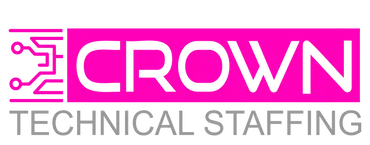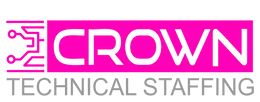It’s a well-accepted truth in our field: engineers are responsible for solving and predicting an array of challenges throughout their careers. Amid technical complexities and project deadlines, it’s easy to overlook the human factor in engineering. By human factor, I’m speaking of the thread that binds us all – communication.
This is a recognized concern—a 2021 article published by the Institute of Education Sciences lamented the lack of soft skills among engineers and engineering graduates. Although technical competence is indispensable, mastering soft skills, or “people” skills, can sometimes bear even greater importance.
Why? Because engineers rarely work in isolation. They are part of dynamic teams, either as collaborators or leaders, communicating technical ideas ranging from specs and dimensions on a blueprint to materials being used to make the next innovative medical device. Misunderstandings or conflicts can slow progress or even halt it. Being able to manage and navigate interpersonal relations under a variety of circumstances can ensure efficiency and open avenues for career progression.
3 Engineers Walk Into A Bar…
Having an opportunity to interview 3 recently placed candidates that now work as a Program Manager, Design Engineer, and Sr. Quality Engineer, I’ve gotten insight into books and resources that have proven invaluable in meeting their career objectives. These resources are not just for students or recent graduates but are also beneficial for experienced engineers seeking a balanced blend of technical and leadership skills.
- Conflict Resolution and Communication. ” “Everyone Communicates, Few Connect: What the Most Effective People Do Differently,” by John C. Maxwell is a must-read for those that would like to impact the way they operate across various departments. Maxwell devotes a chapter to the idea that “Connecting is more skill than natural talent,” a principle that holds profound implications for our communication and collaboration strategies. The central theme is that the ability to connect with others – truly understanding and engaging with colleagues and collaborators – isn’t an inherent trait of a lucky few but a learnable skill that can be nurtured and improved.
The Benefit
When project managers connect effectively with their team members, they create a shared understanding of project objectives, enabling smoother task allocation and execution. This leads to better team dynamics, increased productivity, and overall job satisfaction. And let’s not forget our external stakeholders. When an engineer can connect well with customers, clients, or vendors, they can better interpret their needs and provide tailored solutions. It not only improves customer satisfaction but also enhances the company’s reputation in the marketplace.
2. Understanding Your Team: The Myers-Briggs Type Indicator (MBTI) assessment can reveal your personality preferences and communication styles, an important component to understanding your teammates. While some debate its effectiveness, our candidates’ experience has demonstrated its utility in pinpointing areas for self-improvement and managing diverse personalities effectively.
The Benefit
By knowing and understanding the diversity of personality types within the team, managers can create an environment that respects these differences. This recognition and appreciation of individual strengths can boost morale, job satisfaction, and overall team cohesion.
3. High-Performance Thinking: Mushtak Al-Atabi’s “Think Like an Engineer” provides practical strategies for enhancing problem-solving abilities. It promotes systematic yet creative approaches to issues, a skill often lacking among engineers. Rodney, Design Engineer for a GA-based Medical Device Manufacturer, used some of the lessons in this book to work thru strategies on how to pitch to the team lead when faced with manufacturability issues.
In an era where engineers shoulder considerable stress and responsibility, understanding personality types and fostering effective communication has become more critical than ever. While technical skills may establish proficiency, mastering soft skills is equally crucial as your influence expands. Soft skills come with their own set of challenges – they can be intangible and difficult to measure, and not everyone values or prioritizes them. Despite this, the payoffs in team efficiency, conflict resolution, and personal career growth, makes reading the books and adopting the resources a worthwhile investment.
So How Can We Help You…
When you’re ready to grow and expand your Engineering and Operational Leadership Teams, here are 3 ways that we can help:
1. We partner with your existing talent acquisition teams to help attract and retain Engineers and the frontline leaders that drive productivity.
2. Reduce the cost of acquiring and training new hires by supporting and enhancing the efforts of your onboarding team for the first 90 days.
3. Provide a no-cost assessment of your hiring strategies with a 15-minute consultation.


